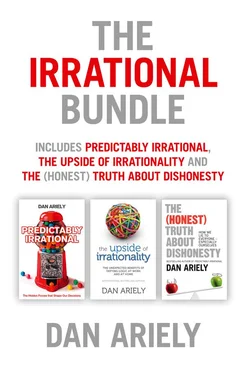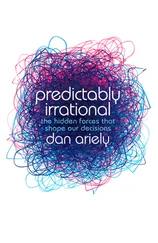I don’t think we can become more accurate and objective in the way we think about our children and houses, but maybe we can realize that we have such biases and listen more carefully to the advice and feedback we get from others.
Chapter 9
Keeping Doors Open
Why Options Distract Us from Our Main Objective
In 210 BC, a Chinese commander named Xiang Yu led his troops across the Yangtze River to attack the army of the Qin (Ch’in) dynasty. Pausing on the banks of the river for the night, his troops awakened in the morning to find, to their horror, that their ships were burning. They hurried to their feet to fight off their attackers, but soon discovered that it was Xiang Yu himself who had set their ships on fire, and that he had also ordered all the cooking pots crushed.
Xiang Yu explained to his troops that without the pots and the ships, they had no other choice but to fight their way to victory or perish. That did not earn Xiang Yu a place on the Chinese army’s list of favorite commanders, but it did have a tremendous focusing effect on his troops: grabbing their lances and bows, they charged ferociously against the enemy and won nine consecutive battles, completely obliterating the main-force units of the Qin dynasty.
Xiang Yu’s story is remarkable because it is completely antithetical to normal human behavior. Normally, we cannot stand the idea of closing the doors on our alternatives. Had most of us been in Xiang Yu’s armor, in other words, we would have sent out part of our army to tend to the ships, just in case we needed them for retreat; and we would have asked others to cook meals, just in case the army needed to stay put for a few weeks. Still others would have been instructed to pound rice out into paper scrolls, just in case we needed parchment on which to sign the terms of the surrender of the mighty Qin (which was highly unlikely in the first place).
In the context of today’s world, we work just as feverishly to keep all our options open. We buy the expandable computer system, just in case we need all those high-tech bells and whistles. We buy the insurance policies that are offered with the plasma high-definition television, just in case the big screen goes blank. We keep our children in every activity we can imagine—just in case one sparks their interest in gymnastics, piano, French, organic gardening, or tae kwon do. And we buy a luxury SUV, not because we really expect to drive off the highway, but because just in case we do, we want to have some clearance beneath our axles.
We might not always be aware of it, but in every case we give something up for those options. We end up with a computer that has more functions than we need, or a stereo with an unnecessarily expensive warranty. And in the case of our kids, we give up their time and ours—and the chance that they could become really good at one activity—in trying to give them some experience in a large range of activities. In running back and forth among the things that might be important, we forget to spend enough time on what really is important. It’s a fool’s game, and one that we are remarkably adept at playing.
I saw this precise problem in one of my undergraduate students, an extremely talented young man named Joe. As an incoming junior, Joe had just completed his required courses, and now he had to choose a major. But which one? He had a passion for architecture—he spent his weekends studying the eclectically designed buildings around Boston. He could see himself as a designer of such proud structures one day. At the same time he liked computer science, particularly the freedom and flexibility that the field offered. He could see himself with a good-paying job at an exciting company like Google. His parents wanted him to become a computer scientist—and besides, who goes to MIT to be an architect anyway? * Конец ознакомительного фрагмента. Текст предоставлен ООО «ЛитРес». Прочитайте эту книгу целиком, купив полную легальную версию на ЛитРес. Безопасно оплатить книгу можно банковской картой Visa, MasterCard, Maestro, со счета мобильного телефона, с платежного терминала, в салоне МТС или Связной, через PayPal, WebMoney, Яндекс.Деньги, QIWI Кошелек, бонусными картами или другим удобным Вам способом.
Still, his love of architecture was strong.
As Joe spoke, he wrung his hands in frustration. The classes he needed for majors in computer science and architecture were incompatible. For computer science, he needed Algorithms, Artificial Intelligence, Computer Systems Engineering, Circuits and Electronics, Signals and Systems, Computational Structures, and a laboratory in Software Engineering. For architecture, he needed different courses: Experiencing Architecture Studio, Foundations in the Visual Arts, Introduction to Building Technology, Introduction to Design Computing, Introduction to the History and Theory of Architecture, and a further set of architecture studios.
How could he shut the door on one career or the other? If he started taking classes in computer science, he would have a hard time switching over to architecture; and if he started in architecture, he would have an equally difficult time switching to computer science. On the other hand, if he signed up for classes in both disciplines, he would most likely end up without a degree in either field at the end of his four years at MIT, and he would require another year (paid for by his parents) to complete his degree. (He eventually graduated with a degree in computer science, but he found the perfect blend in his first job—designing nuclear subs for the Navy.)
Dana, another student of mine, had a similar problem—but hers centered on two boyfriends. She could dedicate her energy and passion to a person she had met recently and, she hoped, build an enduring relationship with him. Or she could continue to put time and effort into a previous relationship that was dying. She clearly liked the new boyfriend better than the former one—yet she couldn’t let the earlier relationship go. Meanwhile, her new boyfriend was getting restless. “Do you really want to risk losing the boy you love,” I asked her, “for the remote possibility that you may discover—at some later date—that you love your former boyfriend more?” She shook her head “no,” and broke into tears. * Конец ознакомительного фрагмента. Текст предоставлен ООО «ЛитРес». Прочитайте эту книгу целиком, купив полную легальную версию на ЛитРес. Безопасно оплатить книгу можно банковской картой Visa, MasterCard, Maestro, со счета мобильного телефона, с платежного терминала, в салоне МТС или Связной, через PayPal, WebMoney, Яндекс.Деньги, QIWI Кошелек, бонусными картами или другим удобным Вам способом.
What is it about options that is so difficult for us? Why do we feel compelled to keep as many doors open as possible, even at great expense? Why can’t we simply commit ourselves? * Конец ознакомительного фрагмента. Текст предоставлен ООО «ЛитРес». Прочитайте эту книгу целиком, купив полную легальную версию на ЛитРес. Безопасно оплатить книгу можно банковской картой Visa, MasterCard, Maestro, со счета мобильного телефона, с платежного терминала, в салоне МТС или Связной, через PayPal, WebMoney, Яндекс.Деньги, QIWI Кошелек, бонусными картами или другим удобным Вам способом.
Читать дальше












